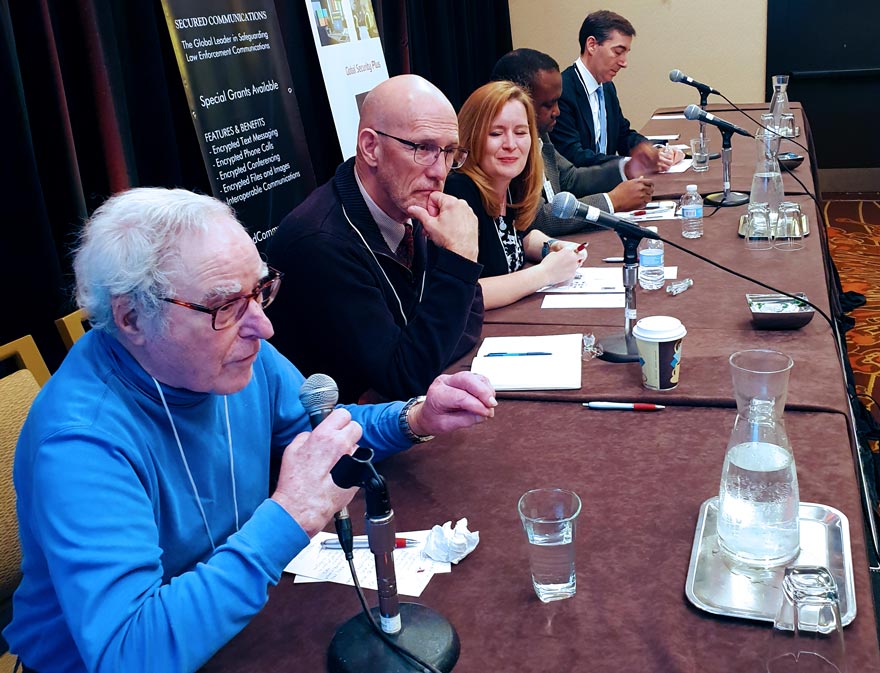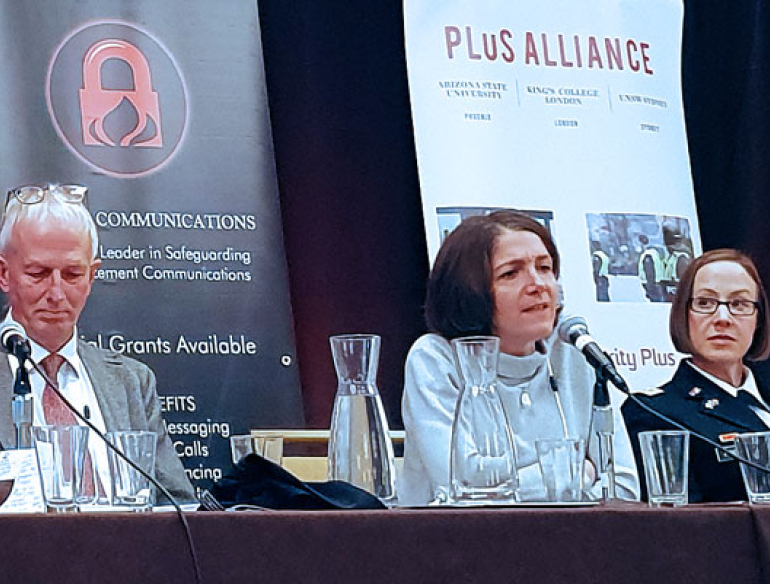If smallpox reappeared, would we be equipped to manage it, or would it spell disaster for the global population? Despite being eradicated 40 years ago, smallpox can be synthetically reproduced in a lab with new technology. This scenario unfolded in "Pacific Eclipse", an immersive tabletop exercise and simulation of a multi-threat bioterrorism disaster. The exercise was held in the USA on 9 December, the 40 year anniversary of smallpox eradication. It was led and designed by the Kirby Institute’s Professor Raina MacIntyre and Associate Professor David Heslop from the School of Public Health and Community Medicine, both at UNSW Sydney, along with PLuS Alliance partner Associate Professor Brian Gerber from Arizona State University, and assistance from the US Indo-Pacific Command in Hawaii. The meeting was attended by over 200 invited key government and non-government stakeholders across different sectors from the USA, UK, Canada, Australia, New Zealand the Indo-Pacific region.
The exercise took place across three sites in the USA: Washington, DC; Phoenix, AZ; and Honolulu, HI. It was an immersive experience designed to allow participants to move through an unfolding bioterrorism scenario, to make decisions using live polling, and consider choices in difficult situations.
“This exercise was designed to test the response of local and global systems, at all levels of government and non-government sectors,” explains Professor MacIntyre. “In a crisis such as this, it is important to be aware of preparedness within a range of sectors, and to navigate local and global priorities in order to avoid disaster.”
Today, the risk of bioterrorism is increasing due to advances in synthetic biology and genetic engineering. Technological capability for serial attacks and multi-threat environments is also on the rise, with formerly siloed areas of security, such as biosecurity and cybersecurity, converging over time.
Pacific Eclipse was underpinned by mathematical modelling research, to provide realistic epidemic outcomes under different scenarios and resulting from different decisions and resource allocation. The exercise was attended by representatives across defence, health, law enforcement and other government and non-government agencies including the WHO, US CDC, US military, FBI, London Metropolitan Police, Defence Science Technology Laboratories UK, and several state and international agencies.

Associate Professor Heslop said that this was a terrific opportunity for international security leaders to converge on an issue of increasing importance. “The fact that this meeting was attended by delegates from a range of sectors and nations, who navigated the exercise simultaneously, meant that we were able to deliver a multi-disciplinary simulation of such an event,” he said. “It provides a good insight into how well our collective systems are prepared, and importantly, where we can do better in working across different sectors such as health, defence and police.”
The exercise was hosted via the PLuS Alliance, a global alliance between three leading universities – Arizona State University, King’s College London, and UNSW Sydney – to solve global challenges around health, social justice, sustainability, technology and innovation. Associate Professor Brian Gerber at Arizona State noted the faculty partnerships created through the PLuS Alliance in part made this exercise possible. “An enormously complex problem like a global disease outbreak requires a coordinated global response. The diversity of disciplinary expertise among PLuS faculty who work together on projects related to global security helps advance thinking about these kinds of issues. This exercise was a good illustration of faculty from the three universities collaborating on an important effort.”
The meeting was also opened by Rear Admiral Louis Tripoli, Command Surgeon of US Indo-Pacific Command, and Professor Anthony Kelleher, Director of the Kirby Institute. Professor Kelleher said that it is collaborations like these that strengthen our ability to address global issues. “At the core of the Kirby Institute’s work is addressing infectious diseases at a global scale. Professor MacIntyre’s role within the PLuS Alliance, and as a leader in global security research, enables us to collaborate within another extensive global network on these issues, and uncover meaningful solutions to complex problems,” he said.
